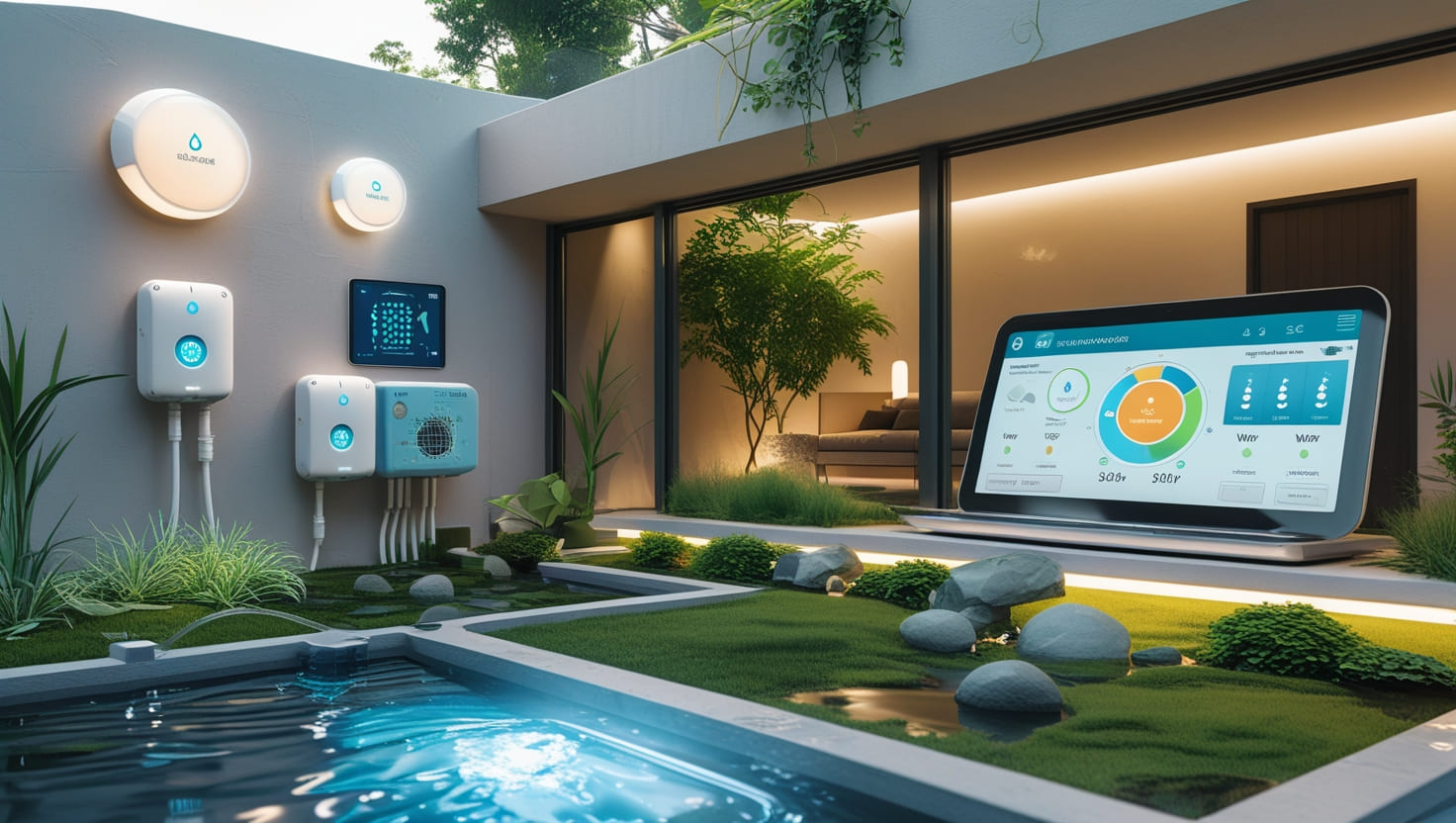Water is one of our planet’s most precious resources — yet it’s under increasing threat due to climate change, pollution, and population growth. As cities expand and the demand for clean water rises, traditional water management systems struggle to keep up. Fortunately, artificial intelligence (AI) is now playing a transformative role in building smarter, more efficient, and sustainable water management systems.
By analyzing data, detecting leaks, predicting usage patterns, and automating operations, AI helps utilities, municipalities, and even smart homes save water, reduce costs, and protect the environment. This article explores how AI is reshaping water management in 2025 and what it means for the future of sustainability.
Why Sustainable Water Management Matters
Water scarcity affects more than 2 billion people globally. With only 0.3% of Earth’s freshwater readily accessible, we must optimize every drop. Sustainable water management ensures:
- Efficient distribution and use
- Leak and loss prevention
- Smart irrigation and agriculture
- Stormwater and wastewater treatment
- Monitoring of water quality and supply
AI provides the intelligence needed to achieve these goals — in real time, at scale.
How AI Supports Smart Water Systems
1. Real-Time Monitoring and Analytics
AI algorithms can process data from thousands of sensors in pipelines, reservoirs, and treatment plants. These systems detect:
- Sudden pressure drops (leaks)
- Water flow anomalies
- Contamination risks
- Equipment malfunctions
This reduces response time, prevents water waste, and improves overall system resilience.
2. Leak Detection and Predictive Maintenance
Using machine learning models, AI can:
- Predict where pipe breaks may occur
- Schedule maintenance proactively
- Avoid costly repairs and water losses
- Extend infrastructure lifespan
Predictive AI saves utilities millions each year and protects communities from disruption.
3. Smart Irrigation in Agriculture
Farming accounts for over 70% of global freshwater use. AI helps reduce this by:
- Monitoring soil moisture with IoT sensors
- Using satellite imagery and weather data
- Automating irrigation based on crop needs
- Optimizing watering schedules
This leads to water savings, better crop yields, and less environmental impact.
4. Demand Forecasting
AI systems learn consumption patterns in residential and commercial areas. They can:
- Forecast water usage by time of day, season, or event
- Optimize pumping schedules and energy use
- Prevent overproduction or shortages
Smart forecasting ensures water availability without excessive resource use.
5. Wastewater Treatment Optimization
AI is revolutionizing how we treat wastewater:
- Monitoring chemical levels and flow rates in real time
- Adjusting treatment processes based on sensor data
- Minimizing energy use and chemical waste
- Ensuring compliance with environmental regulations
This means cleaner water, safer communities, and less pollution.
6. Flood Prediction and Stormwater Management
With rising sea levels and extreme weather events, AI is helping cities prepare by:
- Analyzing rainfall patterns and topography
- Simulating flood scenarios
- Predicting drainage overload
- Guiding emergency response and infrastructure planning
AI turns raw environmental data into lifesaving decisions.
7. Water Quality Monitoring
AI-enabled sensors test water for:
- pH levels
- Turbidity
- Chlorine levels
- Heavy metals and contaminants
Systems automatically notify operators or users when quality drops, preventing illness and ensuring compliance.
AI in Smart Homes and Buildings
Even at the residential level, AI is helping homeowners manage water sustainably:
- Smart leak detectors alert users via apps
- AI-integrated water heaters optimize energy and water use
- Smart irrigation controllers adjust to weather
- Usage analytics help reduce overconsumption
These tools are vital for reducing water bills and conserving resources at scale.
Benefits of AI in Water Management
- ✅ Water conservation: Real-time control reduces waste.
- ✅ Cost savings: Automated systems lower operational expenses.
- ✅ Improved infrastructure: Predictive maintenance avoids major breakdowns.
- ✅ Environmental protection: Less water loss and contamination.
- ✅ Faster response: Immediate alerts and decision-making.
Challenges and Considerations
Despite its promise, implementing AI in water systems has its challenges:
- Initial investment: Sensors and smart infrastructure cost money.
- Data privacy: Household water usage data must be secured.
- Integration: Existing systems may need upgrades to work with AI.
- Skilled workforce: Operators need training to use AI tools effectively.
Governments, tech companies, and communities must collaborate to overcome these hurdles.
Future Trends in AI Water Management
In the near future, expect to see:
- AI-integrated citywide water grids
- Self-healing infrastructure using AI-powered robotics
- Autonomous water drones for monitoring and sampling
- Blockchain + AI systems for transparent water tracking
- Gamification of conservation, where AI encourages users to compete in saving water
These innovations will redefine how we think about and manage this critical resource.
How You Can Contribute to Smart Water Use
Even without large-scale AI systems, individuals can contribute by:
- Installing smart water monitors at home
- Using low-flow fixtures
- Turning off taps when not in use
- Fixing leaks immediately
- Supporting green infrastructure in your community
Small actions, amplified by smart technology, lead to big impact.
Conclusion
As water becomes more precious, managing it sustainably becomes more urgent. AI in water management is not just a technological trend — it’s a solution to one of humanity’s biggest environmental challenges. From agriculture and industry to homes and cities, AI is making water systems smarter, more efficient, and more resilient.
With ongoing innovation and global collaboration, we’re moving toward a future where every drop counts — and is counted.
Which smart water technologies do you believe will have the biggest impact in your home or city? Share your thoughts below!





